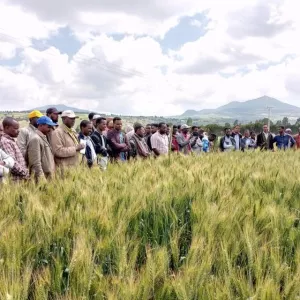Smarter Fertilizer: AI-Powered Recommendations Boost Wheat Yields in Ethiopia
Just like humans need a balanced diet, plants require specific nutrients from the soil to thrive. However, a one-size-fits-all approach to fertilizer application often falls short. Blanket recommendations based on regional averages may work for some crops and farms, but certainly not for all – leading to wasted resources and suboptimal yields. This is especially true in Ethiopia, where wheat

Smarter Fertilizer: AI-Powered Recommendations Boost Wheat Yields in Ethiopia
Just like humans need a balanced diet, plants require specific nutrients from the soil to thrive. However, a one-size-fits-all approach to fertilizer application often falls short. Blanket recommendations based on regional averages may work for some crops and farms, but certainly not for all – leading to wasted resources and suboptimal yields. This is especially true in Ethiopia, where wheat is a staple crop. Despite being Africa’s second-largest producer, with a harvest of 7 million tons in 2022 (ranking 18th worldwide), the country’s average wheat yield falls far short of its potential (6–7 tons per hectare), hovering around 2.6 tons/ha. This gap between potential and reality is largely due to inefficient and non-specific fertilizer use.

